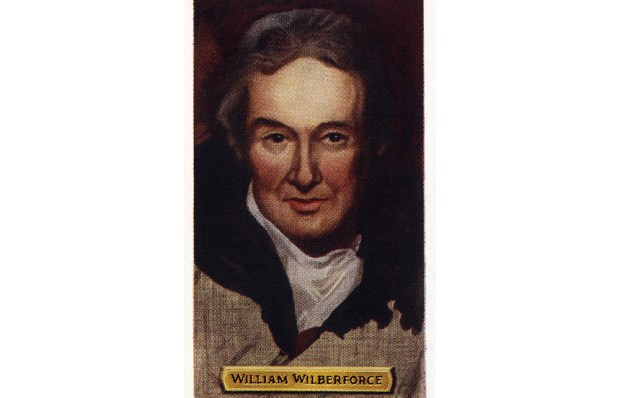Some readers may recall the existence of my defective television set. It is permanently set to Channel 2. I inherited it from my mum, and I keep meaning to toss it out in one of the hard rubbish collections that occur twice a year. Sadly, I keep missing the date.
Anyway, I had it turned on the other day when I was having my morning coffee. The ‘news’ story was about the future of Woodside’s gas project on the North West Shelf in Western Australia. While the state government has approved a forty-year extension, the federal government has been sitting on its hands, repeatedly delaying its decision. (The project needs the approval of both levels of government.)
What needs to be understood here is that the federal government is trying to drive on both sides of the street – I’m looking at you, Plibbers. The strongly held view of the left is that this development should be shut down because it has done enough damage to CLIMATE CHANGE; it is inconceivable that an extension should be granted.
The sensible view is that this is a world-class energy resource. There has already been a huge investment, it provides valuable export dollars and very many jobs depend on its continuation.
The Coalition has pledged to approve the extension very quickly after taking office in the event of an election victory.
The TV segment was a two-way conversation between the ‘talent’ in the studio and some wet-behind-the-ears reporter in Karratha, the town that has most riding on the approval for the project’s extension. Based on pretty much nothing, he told us that the town was torn between wanting the project to continue and concern for CLIMATE CHANGE.
According to this ABC chap, the good folk of Karratha are very worried about the impact of the project on weather patterns, particularly cyclones. He had to concede that there have always been cyclones and that they tend to hit the coast further north. But what the heck, if you are essentially making it up, you can say pretty much say anything if you work for the ABC.
How often do we hear this now? Climate change will lead to more extreme weather events. It’s one of Albo’s favourite memes. Any time there is a bit of a storm or flood or hot spell, it’s because of climate change, at least in a general sense.
There was something of a crescendo on this issue during the second leaders’ debate held on the ABC – my broken TV came in handy then – when David Speers – Speersy to everyone other than Speccie readers – posed the following question: ‘Do you accept we are already seeing the impact of climate change?’
Let’s face it, this is a duplicitous question. Was the question about what Albo and Dutton are personally seeing or what they hear about what others are seeing? He couldn’t have been any more unscientific if he’d tried, although bear in mind that this is the ABC. Of course, this was a deliberate trick question designed to elicit the strength of each leader’s belief in CLIMATE CHANGE, the degree of religious fervour.
Dutton gave the right answer by referring to scientific assessments of the impact of rising global greenhouse gas emissions. Albo went the Billy Graham route – he is seeing the climate change on a daily basis, of course. For ABC viewers and most of the legacy press, this was slam-dunk for Albo.
The most frustrating aspect of the continuous assertions about more extreme weather events are that they are not true. Gosh, even the International Panel on Climate Change accepts that the evidence on more extreme weather events is weak, particularly in respect of cyclones. If anything, the evidence on the incidence of cyclones is that there have been fewer in recent times.
Sharing this frustration is the prolific researcher and writer, Bjorn Lomborg of the Copenhagen Consensus Centre. He makes the important point that we need to be very careful about records of extreme weather events because we have got much better at reporting incidents, even relatively small ones, than was the case in the past. What this means is that any historical time series on extreme weather events must be treated with considerable caution.
The second point he notes is that historical data also includes events such as volcanic eruptions and earthquakes, even train accidents. No one in their right mind thinks these should be included in extreme weather events but those with an axe to grind will throw them in for good measure.
Lomborg concludes that the most accurate way of measuring the severity of weather events is to consider the associated death tolls. ‘Data show climate-related events like floods, droughts, storms and wildfires aren’t killing more people. Deaths have dropped precipitously. Over the past decade, climate-related disasters have killed 98 per cent fewer people than a century ago.’
Lomborg does not deny the possibility that climate change will be associated with certain consequences such as rising sea levels and flooding. But he strongly argues the case for adaptation measures – think the Netherlands and its dykes – rather than scatter-gun emissions reduction measures targeted at influencing the rate of increase in temperatures. The cost of the former is much lower than the standard climate change measures – 0.05 per cent of GDP versus 5 per cent is the cited difference.
Lomborg also makes the completely obvious point that extreme cold is a much greater threat to human life than extreme heat. For this reason alone – and given air-conditioning and proper hydration work a dream during heat waves – we have much more to fear from very cold snaps. There is a real danger if people are unable to afford proper heating because of the distortions to our energy systems undertaken in the name of CLIMATE CHANGE. There’s quite an irony there.
Did Dutton’s reasoned answer during the leaders’ debate do him any good? The sun had barely risen, and the wet faction of the Liberal party was out in the press telling everyone who was listening that, of course, Duts believes in climate change. Everyone in the Liberal party believes in climate change. Everyone in the Liberal party is fully committed to net zero by 2050, even though a fair chunk of the world is turning its back on the idea.
I’m not sure I can recall a more fact-free election campaign, a campaign in which quite deliberate lies and distortions are peddled, and no one seems to pick up on them. The biggest whopper is that the Coalition’s nuclear policy will cost $600 billion based on a ridiculous calculation from the self-serving Smart Energy Council which is desperately seeking to defend investments in renewable energy and keep the subsidies going.
No one at the ABC bothers to question the veracity of this figure or ask Chris Bowen – B1 – what figure should be put on the cost of 82 per cent renewables, including the transmission lines, the condensers, the batteries and all the other paraphernalia required. When minds are closed, this is what happens.
Got something to add? Join the discussion and comment below.
You might disagree with half of it, but you’ll enjoy reading all of it. Try your first month for free, then just $2 a week for the remainder of your first year.













